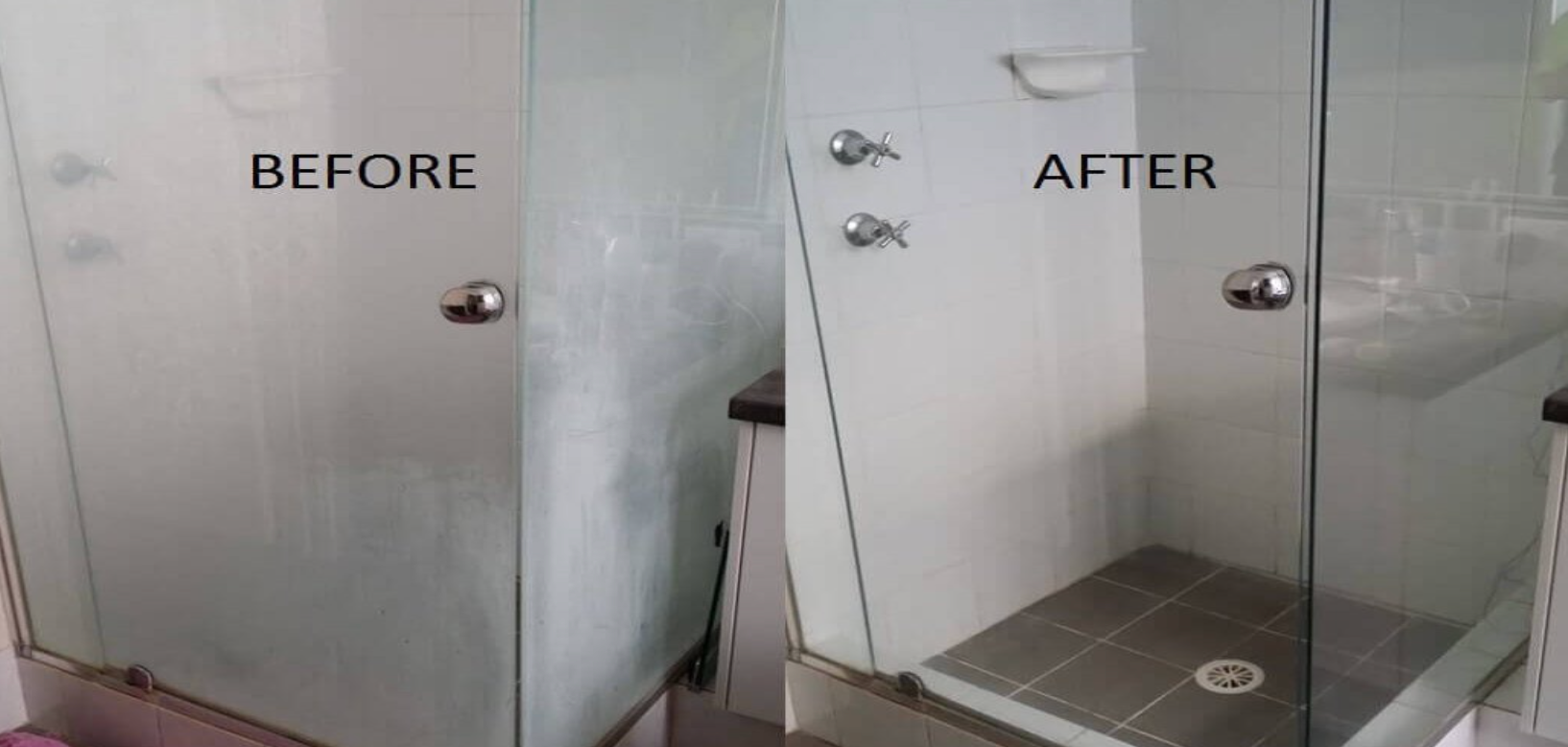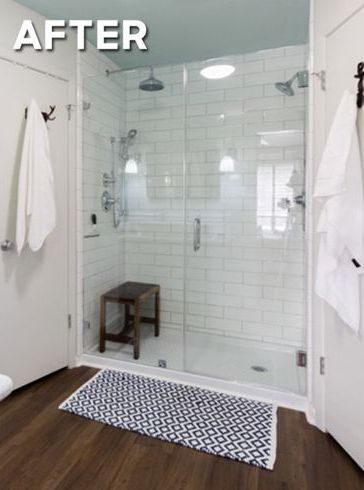Shower Enclosure Glass Cleaning Tips: Prevent Streaks and Build-Up Fast
Introduction to Shower Glass Maintenance

Understanding What Causes Build-Up
Why Regular Cleaning Matters
Regular maintenance of your shower enclosure glass not only keeps your bathroom looking pristine and inviting, but it also plays a crucial role in prolonging the life of the glass itself. By taking the time to clean and care for the glass regularly, you can prevent the buildup of soap scum, hard water stains, and mildew, all of which can diminish its clarity and aesthetic appeal over time. Ultimately, investing a little effort into maintaining your shower enclosure will enhance the overall ambiance of your bathroom and ensure that the glass remains in excellent condition for years to come.
Common Problems with Neglected Shower Glass
Hard water deposits, soap scum, and mildew can accumulate over time, leading to unsightly buildups that not only detract from the visual appeal of your shower but also pose a risk of damaging your glass surfaces and seals. These relentless contaminants can create a cloudy haze on your shower doors and lead to the deterioration of essential sealing areas, ultimately affecting the overall functionality and aesthetic of your bathroom space. It’s important to address these issues promptly to maintain a clean and inviting environment.
Hard Water Stains and Mineral Deposits
Caused by the presence of calcium and magnesium minerals in water, these substances leave behind unsightly, cloudy white marks on surfaces that can be incredibly difficult to remove. Over time, these deposits accumulate, making it even more challenging to restore the original appearance of fixtures and surfaces affected by hard water.
Soap Scum and Product Residue
A filmy layer, created by a combination of fatty acids and hard water, settles on surfaces—unsightly and grime-attracting, it clings stubbornly to sinks, bathtubs, and kitchen counters. This unwanted residue not only detracts from the aesthetic appeal of clean spaces but also serves as a magnet for dust and dirt, making it even more difficult to maintain a pristine environment.
Mold and Mildew Concerns
Mold is commonly found in humid spaces where moisture is prevalent, thriving particularly in areas that lack adequate ventilation. It can grow on seals around frames and corners, especially if these areas do not receive proper care and maintenance. When left unchecked, mold can spread quickly, leading to potential health risks and structural damage. Regular cleaning and attention are essential to prevent its growth and ensure a healthy living environment.
Best Cleaning Products for Shower Enclosure Glass
Choosing between commercial and natural cleaners is essential when caring for shower glass. While commercial products can be very effective, they often contain harsh chemicals that may damage coatings or harm the environment. Natural alternatives like vinegar and lemon juice are both safe and eco-friendly, making them great for regular use. For DIY solutions, a simple vinegar and water mix handles daily grime, a baking soda paste tackles tough stains, and adding dish soap boosts cleaning power. To apply these solutions effectively, you'll need the right tools: a squeegee to prevent water spots, microfiber cloths for polishing, a soft-bristled brush for corners, and spray bottles to hold your homemade cleaners. With the right combination of products and tools, maintaining spotless shower glass becomes quick, safe, and sustainable.
Commercial vs. Natural Cleaners
Commercial: effective but harsh.
Natural: vinegar, lemon juice is eco-friendly and effective.
Recommended DIY Cleaning Solutions
- Vinegar + Water
- Baking Soda Paste
- Vinegar + Dish Soap
Essential Tools
- Squeegee
- Microfiber cloths
- Soft-bristle brush
- Spray bottles
IInformative Guide to Cleaning Shower Glass
Glass Preparation and Safety Considerations
Before starting your cleaning routine, ensure the bathroom is well-ventilated by using an exhaust fan or opening windows. Wearing gloves protects your skin from irritation, especially when using cleaning agents. Never mix bleach with vinegar or other acids, as this creates toxic fumes that are hazardous to your health.
Show Glass Cleaning Techniques
For light build-up, spray white vinegar directly onto the glass and let it sit for 5 to 10 minutes. Wipe with a microfiber cloth, then rinse and dry thoroughly with a squeegee. For stubborn stains, prepare a paste using baking soda and water. Apply the paste to problem areas, gently scrub with a soft-bristle brush, rinse off completely, and polish the surface after drying.
Preventing Future Build-Up
To keep your shower glass looking clear longer, apply a glass protectant like Rain-X every few months to create a water-repellent barrier. Proper ventilation is also key—always run a fan or open a window after showers to reduce lingering moisture. If you live in a hard water area, consider installing a water softener to significantly reduce mineral deposits that cause build-up.
Glass Cleaning Precautions
Avoid using abrasive tools such as steel wool, razors, or harsh scrubbing pads that can scratch or damage the glass. Also, steer clear of strong chemicals like ammonia and bleach, especially on glass treated with a protective coating, to avoid permanent etching or discoloration.
Eco-Friendly and Chemical-Free Cleaning Alternatives
How to Make Your Own Eco Glass Spray
For an effective, eco-friendly cleaning solution, combine 1 cup of distilled water with 1 cup of white vinegar and add 10 drops of your preferred essential oil, such as tea tree, lavender, or eucalyptus. Pour the mixture into a spray bottle, shake well, and spray it directly onto the shower glass. Let it sit for a few minutes before wiping it off with a microfiber cloth for a streak-free shine.
Video Tutorial:
https://www.youtube.com/shorts/33nl06NG9rw
Seasonal Deep Cleaning and Inspections
Every few months, give your shower enclosure a thorough cleaning. Scrub all glass surfaces, paying special attention to edges and corners where buildup tends to hide. Reapply any protective glass coatings, and inspect seals and hardware for signs of wear. Seasonal maintenance is crucial because temperature and humidity changes can affect the longevity and condition of your enclosure. Catching cracks, mildew, or deteriorated seals early prevents costly repairs later on.
Caring for Framed vs. Frameless Shower Enclosures
Framed enclosures have more crevices that trap moisture and require more meticulous cleaning, while frameless designs are easier to maintain and often come with treated glass that resists buildup. For framed models, use a toothbrush and a vinegar solution to clean tight spots, and dry them thoroughly to avoid rust. Frameless units, though simpler, require regular care for their hardware—wipe down brackets and hinges, and apply silicone spray to keep them functioning smoothly.
Conclusion: Keep It Sparkling with Minimal Effort
To maintain clear, beautiful shower glass, establish a consistent routine. Use a squeegee daily to prevent water spots, clean thoroughly every week with gentle solutions, and deep-clean with inspections every season. With natural cleaners, protective coatings, and minor seasonal adjustments, your shower enclosure will remain spotless and last longer with minimal effort.
FAQs About Shower Enclosure Glass Cleaning
Q: How Often Should I Clean My Shower Glass?
To maintain a sparkling and pristine appearance, it is recommended to use a squeegee daily to prevent water spots and buildup on glass surfaces. In addition to this daily maintenance, a more thorough cleaning should be conducted once a week to ensure that every corner is freshly cleaned and free of grime. Furthermore, for an optimal deep clean, it is advisable to dedicate time for an intensive cleaning session every 3 to 4 months. This routine will help keep your surfaces looking their best and extend their longevity.
Q: What’s the Best Cleaner for Hard Water Stains?
You can use a baking soda paste, which is easy to make by simply mixing baking soda with a small amount of water to form a thick consistency. Alternatively, you could opt for a safe commercial remover specifically designed for the task at hand. Both options can effectively tackle the job while ensuring safety and ease of use.
Q: Can I Use a Razor Blade?
No, it is not advisable. Using that can lead to scratches or even cause permanent damage to your glass surfaces. It's important to protect your glass by avoiding anything that could harm its delicate surface.
Q: Is Vinegar Safe Every Day?
Yes, if it is properly diluted, it should work effectively; however, I recommend testing it on a small section of coated glass first to ensure it does not affect the finish negatively. This way, you can be confident in its application without risking any damage.
Q: Should I Use a Glass Sealant?
Absolutely. Implementing this strategy not only streamlines the cleaning process but also makes future cleaning tasks significantly faster and more effective. By taking proactive measures now, you'll save time and effort later on, ensuring a more efficient routine overall.






